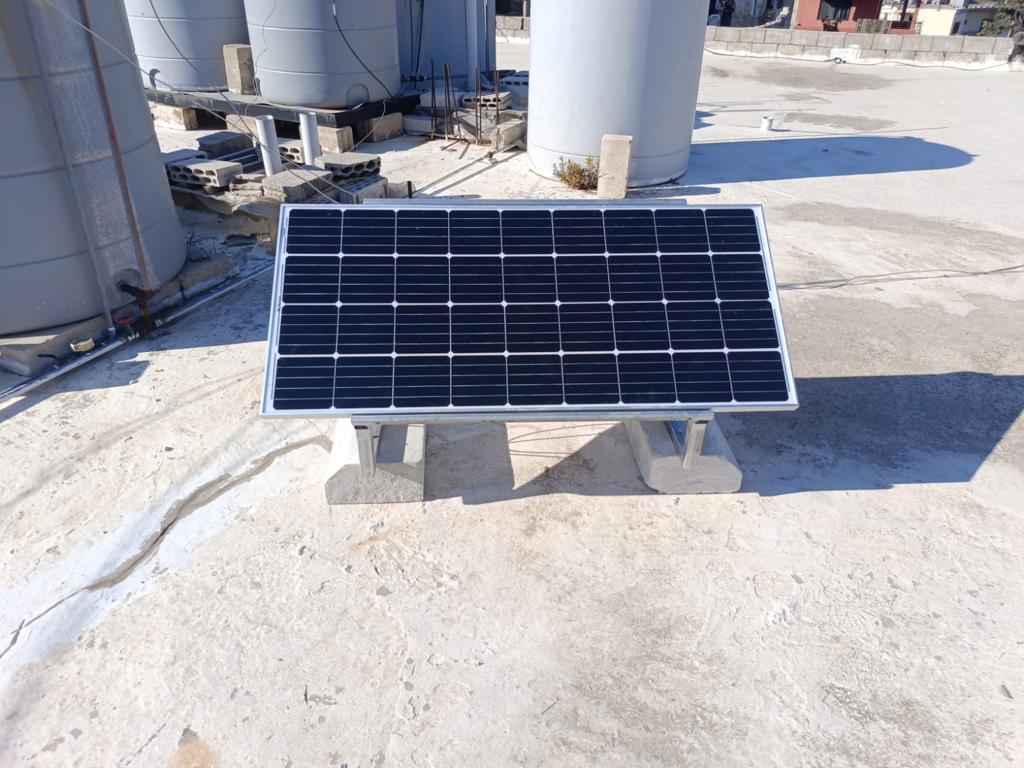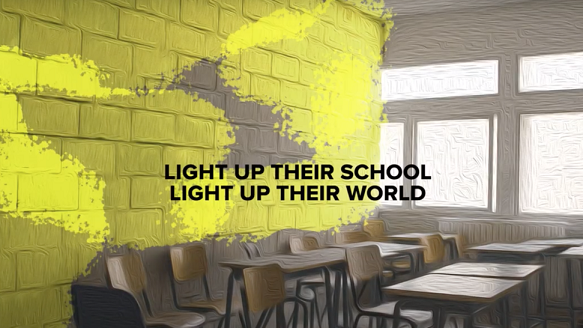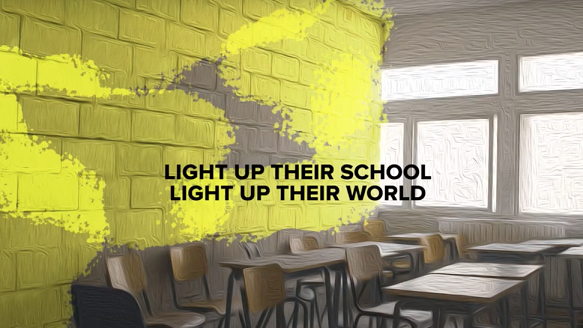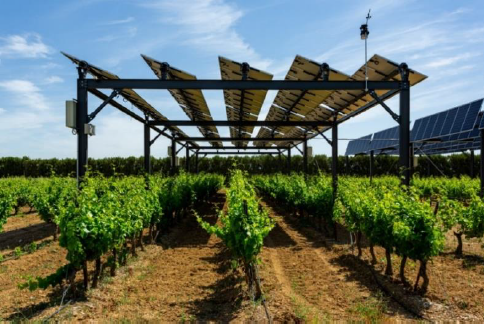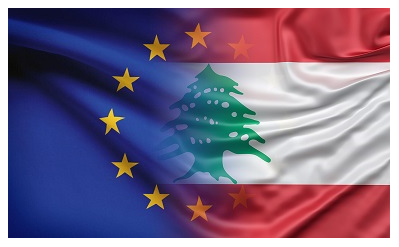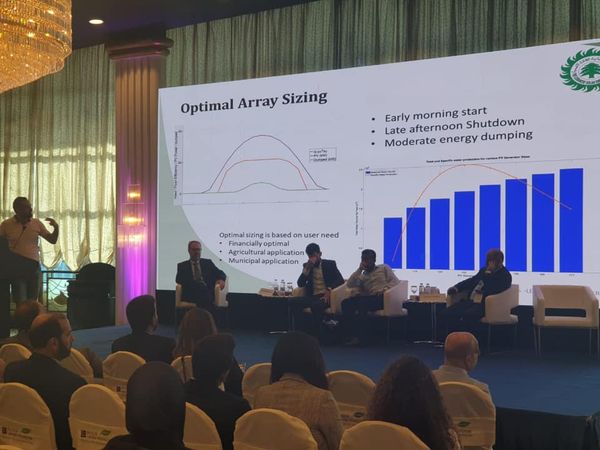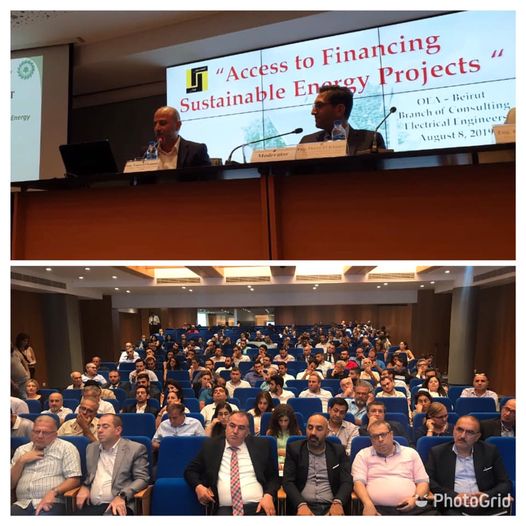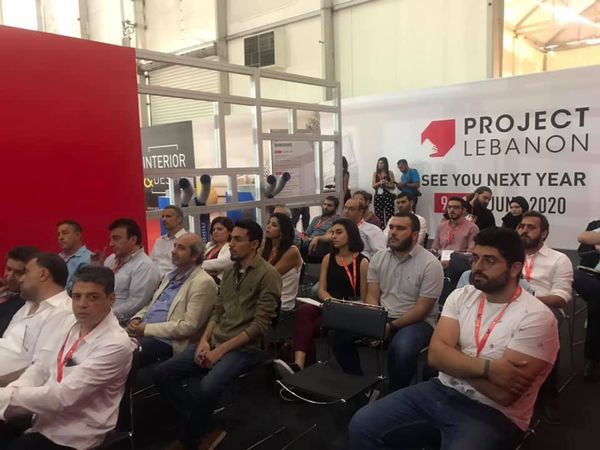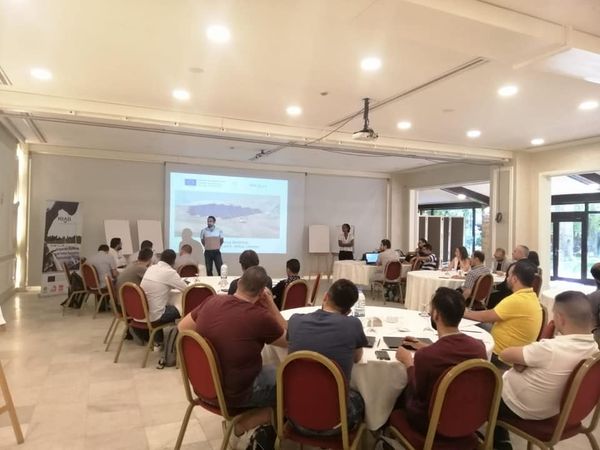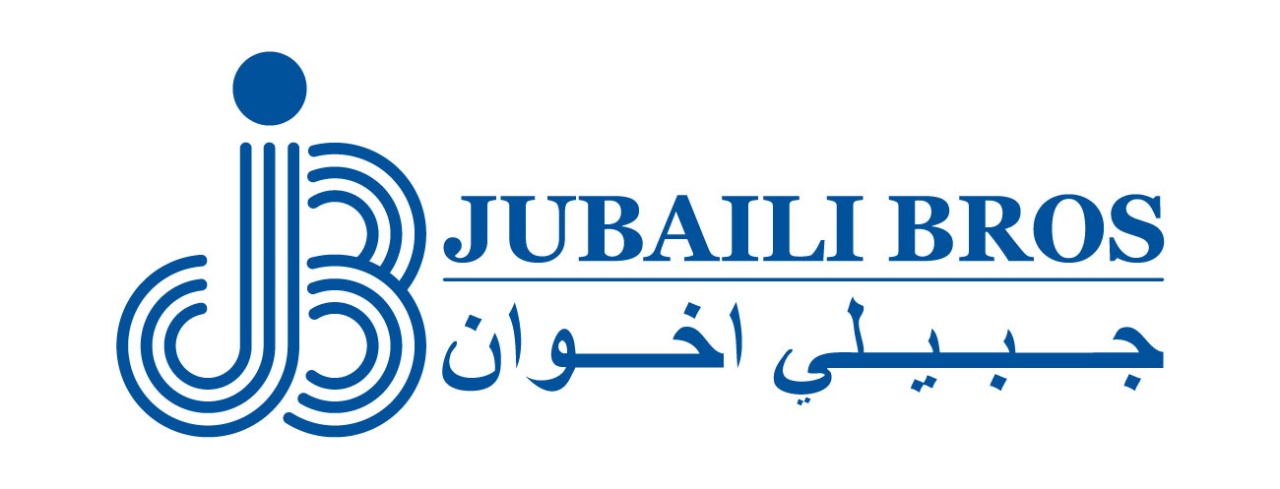SPSPP
On August 4, 2020, an explosion involving a large amount of ammonium nitrate stored in the Port of Beirut resulted in over 230 deaths and thousands of injuries.
The Lebanese Solar Energy Society (LSES), like the majority of civil society, decided to assist the affected families by this dramatic blast even though it falls outside of the society's core area of its expertise such as capacity building, consulting, training and awareness activities as well as education.
In order to procure funding for supplying and installing Solar portable power packs that might help in providing clean and sustainable energy to residents of the area around Beirut Port and its environs, LSES President Walid El Baba developed and submitted the concept through a call for proposal launched by The Global Environment Facility/ Small Grant Program (''GEF SGP'') under UNDP. The project was selected and approved and LSES received a grant of 37 500 $ for this project titled “Small Portable Solar Power Packs (SPSPP)”, LSES offering an additional amount of 12 500 $ in kind.
This project consists in providing the supply and proper operation of 26 portable solar power packs of capacity 1000 watts with battery , a PV solar panel of 185 Wp to meet urgent local needs of low-income families houses, half of the units being delivered to apartments affected by the explosion of Beirut port, the other half to apartments in Beirut suburbs mainly in marginalized areas for the most vulnerable families which would affect the education of their children, the domestic day to day use of the families including lighting, internet, refrigerators. A training session for 8 technicians and young engineers at Industrial research Institute IRI to be familiarized with the solar PV systems in general, components and types of installations, as well as a workshop for disseminating the information among selected organizations of civil society are forming the second phase of the project
After the contract was signed, LSES named the project team including a director, manager, coordinator, and two student electrical engineers (one male and one female) who will work on the project's execution.
After creating the questionnaire, LSES contacted numerous credible social help organizations operating in different regions of Beirut to collect as many names as possible of potential beneficiaries.
The evaluation was based on a number of factors, including the family's living conditions, yearly income, the cost of the subscription generator (for those who are subscribers), the number of family members, particularly those who have medical conditions necessitating constant electrical power, such the use of respirators.
For the implementation phase, LSES contracted the supply of the Power packs to Renewable Med Energies Mr Ziad Doumit and Messrs. Yamak contracting for the solar PV panels while the execution was contracted to Projection sarl,
The team made site visits to the chosen homes to assess the buildings' state and determine the ideal location for the solar panel installation. The engineer in charge gave an explanation of proper power pack usage to the family members as well.
LSES members Ecosys offered with thanks the PV cables (1200 M), and Solarnet provided small part of the electrical accessories.
The installation proved difficult because of many constraints mainly the poor conditions of the buildings, the majority being very old .Special attention was given to the metallic supporting structure installation reinforced on top with concrete blocks of 50kgs. Those blocks (among other supplies) were carried to the roofs. The installation phase was completed successfully by July 20, just before the Beirut Blast's third anniversary. The supplied solar energy packs will be visited twice a month for the 3 coming months to ensure their proper operation. A report will be done accordingly and sent to the donors
Despite all the challenges the team faced before, during, and occasionally after the installation, everyone was delighted. The families wanted to express their gratitude to each and every one who helped make this initiative a reality.
The majority of them shed tears because they were unaware that the darkness they had been struggling with could ever have an impact on their daily lives. They used heartfelt words to show their gratitude. We have kept quite a few of them:
- نحنا منشكركن كتير على العمل الاحترافي الرائع، نحن كتير فرحانين. الله يجبر بخاطركن متل ما جبرتو بخاطرنا وينوّر أيامكن متل ما نوّرتوا أيامنا. (مستفيدة من المشروع)
- أنا بدي الكن شكراً على كل الجهد لي عملتو، وبدي اشكر كل شخص تبرّع لانجاح هيدا المشروع، المكينة عم تشتغل بشكل رائع. كلكن ذوق الله يبارك فيكم.(مستفيدة من المشروع)
- لساني عاجز عن شكركن، عم بطلب من ربي انو يعطيكن ايام حلوة ومن قلبي بشكركن.(مستفيد من المشروع.
PV at Bakhoun school
You are invited to participate to the RFQ of solar PV modules for Bakhoun Technical College
The envisaged project falls under the category of renewable energy for educational public institutions. It consists of the installation of a Photovoltaic PV Solar system on the roof of a remote public vocational technical school, Bakhoun public technical college, located in the north of Lebanon in the village of Bakhoun. The college provides technical vocational education for 900 students from both sexes including Lebanese and Syrians refugees.
The project is located in Bakhoun that falls under Union of municipalities of Dinniyeh which prepared the Sustainable Energy Access & Climate Action Plans (SEACAPs) that enables the beginning of financial mobilization for the actions that better the town or village’s mitigation of greenhouse gas emissions and/or climate change adaptation.
The college currently runs on fuel engine generators and the utility grid. The college management is suffering due to the Syrian refugee crisis that has led public schools to take on two shifts in addition to the burden of electricity costs considering excessive blackouts, high diesel cost and shortage of diesel.
The technical college in addition to the municipality are willing to start a great step towards sustainable energy for improving the environment by reducing the amount of carbon emissions and for cutting energy costs.
LSES is targeting to implement a solar PV system and LED Lighting retrofit in Bakhoun Technical College following the success of the crowdfunding campaign that raised 10,000 USD through donations and online support on Live Love Beirut Platform for Bakhoun Technical College. This project aims to decrease the load consumption of the college using renewable energy technologies and to reduce pollution loads.
The details of the Request for Quotations is downloadable on the following link
PV at Bakhooun School
An agreement is under signature between LSES and UNDP to implement PV Solar system with battery storage system at Bakhoun Technical School. LSES will have 40 000, 00 $ to complete this project.
Project will be launched in November 2021 and the opening is planned on June 2022 (7 months duration)
The Problem: In Bakhoun, a northern Lebanese village, 900 students are at risk of dropping out of school as their only educational facility in the area can no longer sustain itself in terms of electricity and power generation. The school closure is preventable if sustainable and long term measures are urgently implemented.
- The School and its conditions: The schooling conditions in the Bakhoun Technical School are deteriorating due to the shortage in power supply. The school that runs two shifts has a high electricity demand and, in parallel, faces excessive blackouts, high diesel cost, shortage of diesel, and high maintenance cost, in addition to sound and air pollution caused by the diesel generators.
- A community problem requires a community led solution: the inability of generating energy to sustain an educational facility is resulting in practical classes being cancelled. Children are spending excessive time in the playground and less time in the classrooms, the quality of education is degrading, the risk of drop outs is increasing, and the constant exposure to air pollution is putting the health of children at risk. The problem is a community scale one, therefore, it has to have a community led solution.
- The ‘’everyone is a winner’’ solution: LSES, in collaboration with UNDP Cedro5, project are offering their expertise and knowledge in designing and implementing energy and environmental solutions. The objective is to supply and install a small-scale Solar Photovoltaic power plant consisting of a Photovoltaic generator, inverter, fuel save controller, data logger, and auxiliary equipment at the Bakhoun School and provide training for the school management for the operation and maintenance of the installed system.
- Four years, we break even and we give the environment a break: The project that will cost USD 20,000 and the proposed Photovoltaic system capacity of 18 KWp will cover around 60% of the power consumption and reduce around 16 tons of CO2 emissions per year. The estimated annual savings are around USD 4600 which would pay back the initial cost in around four years.
- Investment in sustainability is investing in the future: When implemented, this project will serve as a model for the design and management of small-scale Photovoltaic projects. Residents of Bakhoun and nearby municipalities will consider this project as a pilot action to be replicated in view of developing more green energy technology resources in the region.
Agrivoltaics Consortium
The Pre-concept note on a Water-Energy-Agriculture pilot project in North BeKaa where LSES will be responsible of the Energy Part introducing Solar Photovoltaics applications in the agriculture field has been completed.
Fund raising campaign is under launching
REESTART Project
The LSES was awarded with its partners an EU grant to implement the REESTART project.
The Project “Renewable Energy and Efficiency for Sustainable Energy Transition and reinforced trust between SMEs (Small and medium enterprises) and ESCOs (Energy Services company) is a EU project to “Promote innovation and entrepreneurship in support of Lebanon’s clean energy transition”. It is under good progress and consists in 4 main pillars:
-Capacity Building Program to reach the Lebanese Energy Service Companies in order to train on the technical, financial and legal framework to develop own Energy Business.
-Call for proposal to select 35 SMEs in order to give them a partially subsidize for Energy Audit, and to select10 ESCOs in order to give them access to sustainable energy finance to implement the energy efficiency and renewable energy interventions
-Selection, implementation and monitoring of 6 Pilot Projects at SMEs plant.
-Creation of Lebanese federation of ESCOs

https://www.reestart.eu/Follow the project on Facebook
LSES at iBEF 2019
The LSES organized a technical session at the iBEF2019
The session covered optimal solar PV pumping designs and best practices, along with large scale PV projects development, and was presented by Mr. Youssef Ghantous, Mr. Rabih el Osta and Mr. Adnan Zein
Workshop at OEA
LSES participation in a workshop in the aborder of Engineers in Beirut about Financing Sustainable projects
Project Lebanon 2019
LSES session in Project Lebanon 2019 about solar water pumping and collective solar heaters presented by Mr. Youssef Ghantous and Mr. Adnan Zein
Solar Pumping Training
Oxfam and LSES completed an advanced 3-day training on solar pumping held in Chtaura for lebanese water establishements engineers and operators. The training was a great success and our national water establishment managers got to know more about solar integration possibilities.
The training was conducted by the Lebanese Solar Energy Society(LSES) and Oxfam global solar and in coordination with Bekaa Water Establishment from May 29,2019 to May 31,2019.
The objectives of the training was to increase the capacity of the participants to be able to:
- Assess the feasibility of installing solar water pumping system.
- Able to differentiate between different type of solar systems and when to use these different types.
- Assess the main steps of project development and implementation for solar water pumping.
- Assess existing solar water pumping systems
- Compare different type of solar systems
- Become familiar with risk in implementation and mitigation
- Become familiar with solar water pumping design software.
- Become familiar with specifications to support solar water pumping tender processes.
- Understand operation and maintenance needs for solar water pumping.

